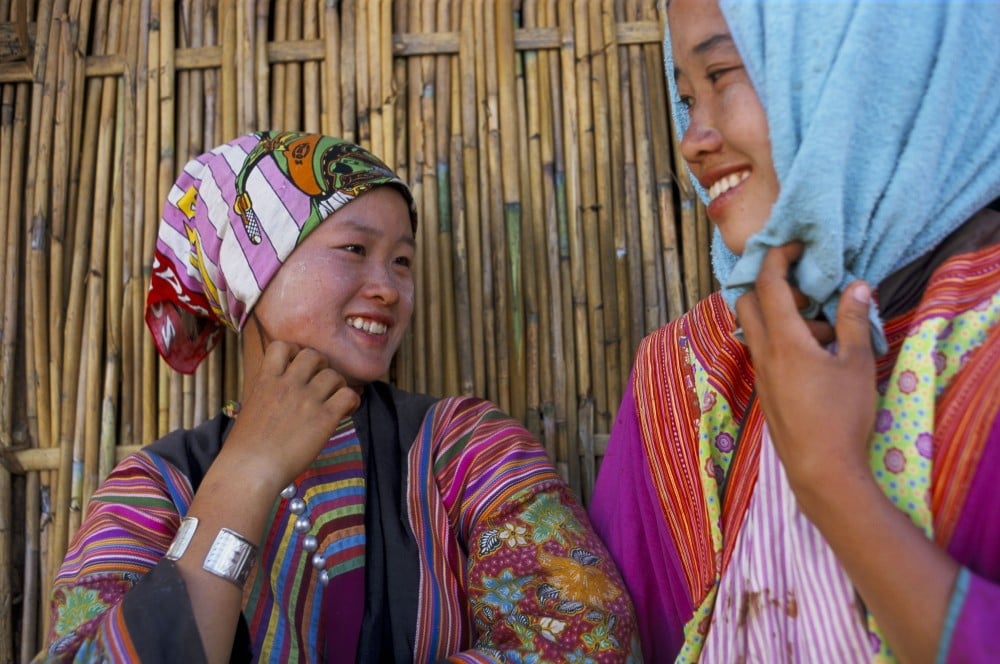
Enhancing quality and universal access to indigenous peoples’ reproductive healthcare (EQUIP)
We sincerely regret that this programme was forced to close in the second year of a planned four-year project, due to the fact that the FCDO withdrew funding as a result of budget cuts with short notice. MRG remains committed to ensuring that minority and indigenous women benefit from Sexual and Reproductive Health Services in equity with others where they live and is seeking alternative funding sources to continue the work. Please see also here for our provision of advice and services to UNFPA regarding operationalising most effectively their commitment to LNOB. We regret that due to the forced early closure of this project mid way through the planned work, no evaluation was carried out.
Duration: 2019 – 2021
Countries: Cambodia (Ratanakiri/Mondulkiris), Ethiopia (Dollo Bay in Liben Zone, Somali Region), Kenya (Mandera and Somalia borders), Myanmar (Kachin State and Northern Shan State)
Communities: Indigenous peoples
What was this programme about?
Globally, Sexual and Reproductive Health (SRH) services provided to indigenous women are significantly worse than to majority population. Indigenous women and girls die in pregnancy and childbirth more often than other women because they are three time less likely to receive antenatal care and almost half as likely to have skilled attendance at birth. The service design which lacks the consideration of the attitudes and cultural norms of indigenous women may also prevent them accessing and utilising appropriate SRH services. However, this disparity in SRH services between the populations is masked due to lack of data disaggregation by ethnicity and the limited capacity of the local organizations to get their voice heard. (See for details in the fact sheet of UNFPA for Indigenous Women’s Maternal Health and Maternal Mortality which is based in MRG and HPA research.)
In response to these challenges, EQUIP used participatory process empowering indigenous women and girls to research and analyse their problems, to pilot solutions by adapting their attitudes and cultural norms, and to voice for their specific needs and the quality client-oriented health services. EQUIP’s participatory approach aimed to be effective in supporting marginalised indigenous women and girls to access the improved, culturally appropriate, sensitive and accessible SRH services. It is the most sustainable transformative way to bring about impact for the ethnic minorities and indigenous people who face direct and indirect social, economic, political and cultural discrimination.
What did we do?
EQUIP aimed to be directly beneficial to 41,281 indigenous women and girls and impact the lives of almost 200,000 of them (including those facing intersectional discrimination such as disability and HIV status) from target areas of Myanmar, Cambodia, Ethiopia, and Kenya.
EQUIP aimed at:
- Conducting Participatory Action Research (PAR) which involved indigenous women and girls in focus group discussions, interviews and data collection with support from local partners in each country;
- Developing action plans to pilot solutions decided by indigenous women and girls after researching and analysing the results from PAR depending on the political sensitivity of the countries;
- Improving SRH services by training health workers on how to take accounts the specific norms and culture of Ethnic Minority/Indigenous People (EM/IP), and by training Traditional Birth Attendance (TBA) to support pregnant EM/IP women;
- Designing Beneficiary Feedback Mechanism (BFM) for monitoring the government SRH services (e.g. the community score cards to hold health workers accountable for the quality of services);
- Initiating dialogue between the decision makers and EM/IP representatives to share the learnings from PAR, the pilot project, to work toward the acceptance of BFM models and roll-out of the principles and learnings gained in other areas; and
- Contributing to the Sustainable Development Goals (SDGs) by sharing and encouraging to take up lessons learned throughout the programme to the stakeholders in both national and international levels.
Who was delivering the programme with us?
Our partners were:
- IIDA Women’s Development Organisation
- Mothers and Children Multisectoral Development Organisation
- Highlander Association Ratanakri
- Health Unlimited (Health Poverty Action)
- Khmer HIV/AIDS Alliance
- Kachin Women Association of Thailand
—
This programme was supported by the Department For International Development (DfID), UK AID. This content is the sole responsibility of Minority Rights Group International and can under no circumstances be regarded as reflecting the position of DfID.
Photo: Two Lisu girls in Shan State, Myanmar. Credit: Jenny Matthews/Alamy.